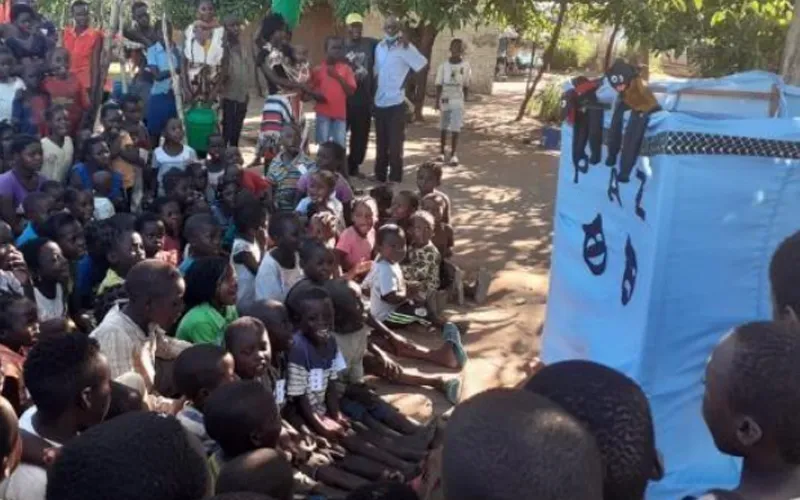Pemba, 16 May, 2021 / 8:20 pm (ACI Africa).
A Catholic Priest ministering in Mozambique’s Pemba Diocese is using puppets to provide psychosocial support to children who have undergone trauma in the country’s warrying Cabo Delgado region.
Information shared by Denis Hurley Peace Institute (DHPI) of the Southern African Catholic Bishops Conference (SACBC) indicates that hundreds of children are among displaced people currently hosted by the Mozambican Diocese after they fled from Cabo Delgado in northern Mozambique, where militants continue to wreak havoc against innocent civilians.
Many of the children that Fr. Edegard Silva Junior is looking after are those that have been orphaned from the violence, the leadership of DHPI has told ACI Africa.
“Fr. Edegard Silva Junior is pioneering an innovative strategy to provide psycho-social support to displaced children, many of them orphans, in the reception camp at Metuge, outside Pemba,” DHPI Director Johan Viljoen told ACI Africa Friday, May 7 when he reported about the activities of the charity organization in Pemba and in the Archdiocese of Nampula where other refugees are hosted.
Mr. Viljoen added in reference to the displaced children, “Traumatized by the violence they witnessed, often having seen their parents and siblings being killed, they do not open easily to a counsellor. Fr. Edegard is using puppet shows to engage with them.”








